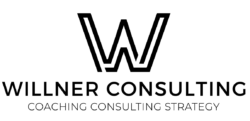Reclaiming Your Agency: The Choice You Always Have
Many mid-career professionals come to me feeling stuck, overwhelmed, and unsure of their strengths and purpose. Often, this frustration stems from a loss of personal agency—the ability to make choices and influence one’s circumstances. The relentless cycle of meetings, emails, and the juggle between career and personal life can make decision-making feel like something that happens to us rather than by us. We may start to perceive our thoughts and emotions as facts, and react to situations that provoke us instead of choosing our responses.
I’ve been there. During my corporate years—managing work, travel, and small children—things like exercise, career development, and even personal happiness periodically took a backseat. No one was prioritizing them or advocating for them, least of all me. But here’s the truth: we always have choices, and more of them than we immediately can imagine. The challenge is remembering that and acting on it.
What Is Personal Agency?
Personal agency is the ability to act independently, make choices, and shape our lives. It’s deeply tied to self-efficacy, autonomy, and empowerment—key themes in positive psychology:
- Martin Seligman highlights how a sense of control contributes to well-being.
- Albert Bandura describes agency as the ability to shape one’s circumstances through motivation and perseverance.
- Amartya Sen sees agency as the freedom to pursue meaningful goals.
- Susan David emphasizes that even difficult decisions can be liberating because they help define who we are. In her TED Talk, The Gift and Power of Emotional Courage, she advocates for embracing emotional truth as a path to genuine empowerment.
Yet, in a world that constantly reminds us of what’s beyond our control—bad news, workplace stress, societal expectations—it’s easy to forget our own power. This often leads to all-or-nothing thinking, where we see situations in extremes: success or failure, good or bad, all or nothing. When stuck in this mindset, we lose sight of the many possibilities in between. If we cannot spend a certain amount of hours in the gym, we will do nothing at all, if we cannot change the situation we will not try to influence, if we do not get on that desired promotion path, we might just give up on growing.
Where Do You Start? Small Choices, Big Impact
Reclaiming agency isn’t about controlling everything—it’s about recognizing where we do have influence. A helpful framework comes from Stephen Covey’s Circles of Concern, Influence, and Control:
- Circle of Concern – Things we care about but cannot control (e.g., world events, corporate policies, the moods or behaviors of others).
- Circle of Influence – Areas where we can have some impact (e.g., work habits, relationships, projects, health).
- Circle of Control – The things we can change, such as our actions, responses, mindset, and choices.
Shifting focus from what we can’t control to what we can influence is key to regaining agency. When I was lost in my “crazy years,” my first step was simple yet tiny: taking an earlier bus to work, sitting in a café for 15-20 minutes, and listening to my own thoughts while enjoying a seriously good cup of coffee. This small act of intentionality eventually led me to the field of coaching and a life I actively chose. But there were quite a few little steps in between, such as eventually choosing, enrolling in, and pursuing the right training and obviously setting boundaries around the time needed. But it all started with those café mornings between family duties and the workplace that drained me.
Practical Ways to Regain Agency
- Schedule reflection time – Even 10 minutes a day helps, especially if your offset is nothing.
- Audit your energy – What drains you? What energizes you? Adjust accordingly.
- Revisit your values – Are your choices reflecting what matters most? How do you want to show up and respond to the matters you currently do not like?
- Take control of your calendar – Ensure it prioritizes you, not just demands from others.
- Use micro-habits – Small, consistent actions bridge the gap between intention and action and mitigates All-or-Nothing thinking. (More on micro-habits here)
- Keep choosing – From your morning routine, learning opportunities, to the people you spend time with; be intentional.
Making Choices in an Imperfect World
Encouraging overwhelmed professionals to reclaim agency doesn’t mean ignoring the structural and cultural factors that contribute to stress. We need systemic change in our societies and organizations and we need to challenge the culture of toxic productivity that is neither healthy or sustainable. But while advocating for healthier work environments, we must also claim the choices available to us now. Because the act of making choices is very empowering in itself.
And yes, every choice comes with trade-offs. Someone might be unhappy about your boundary. A project might take longer. A financial opportunity or promotion might be missed. You might say no to something you would have enjoyed. But when decisions are conscious and align with your values, those trade-offs become easier to accept.
What’s one small choice you can make today?
References and related resources
Development Partnership UK on Steven Coveys Circles of influence https://dplearningzone.the-dp.co.uk/wp-content/uploads/sites/2/2015/06/Covey.pdf
David, Susan PhD The Gift and Power of Emotional Courage https://www.youtube.com/watch?v=NDQ1Mi5I4rg
Willson, Jillian, HuffPost, on Microhabits https://www.huffpost.com/entry/micro-habits-benefits_l_67aa0d0ce4b0ade4a9a34ed5
Martin Seligman, “Learned Optimism: How to Change Your Mind and Your Life“ (1990)
Amartya Sen “Development as Freedom” (1999)
Albert Bandura – “Social Foundations of Thought and Action: A Social Cognitive Theory” (1986)



